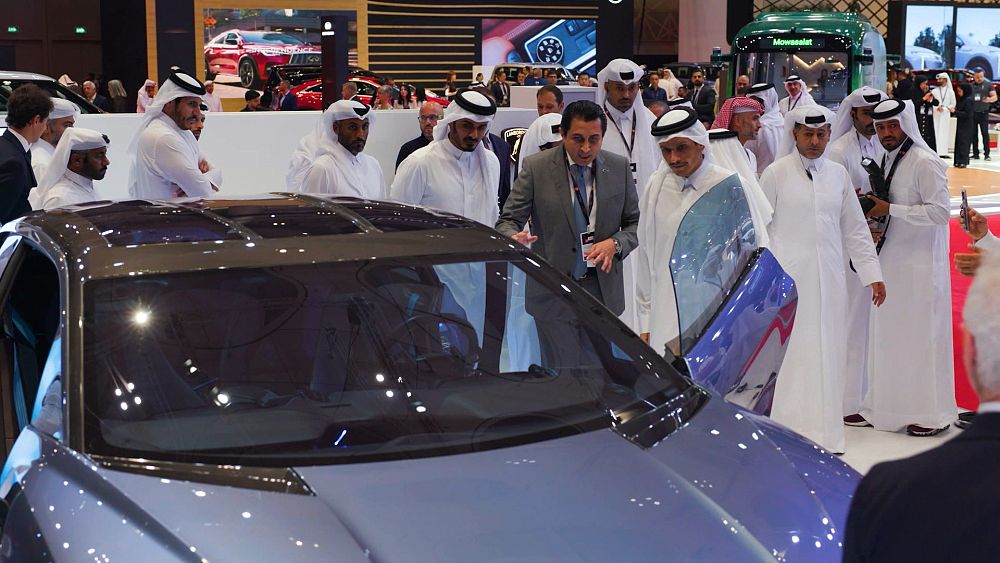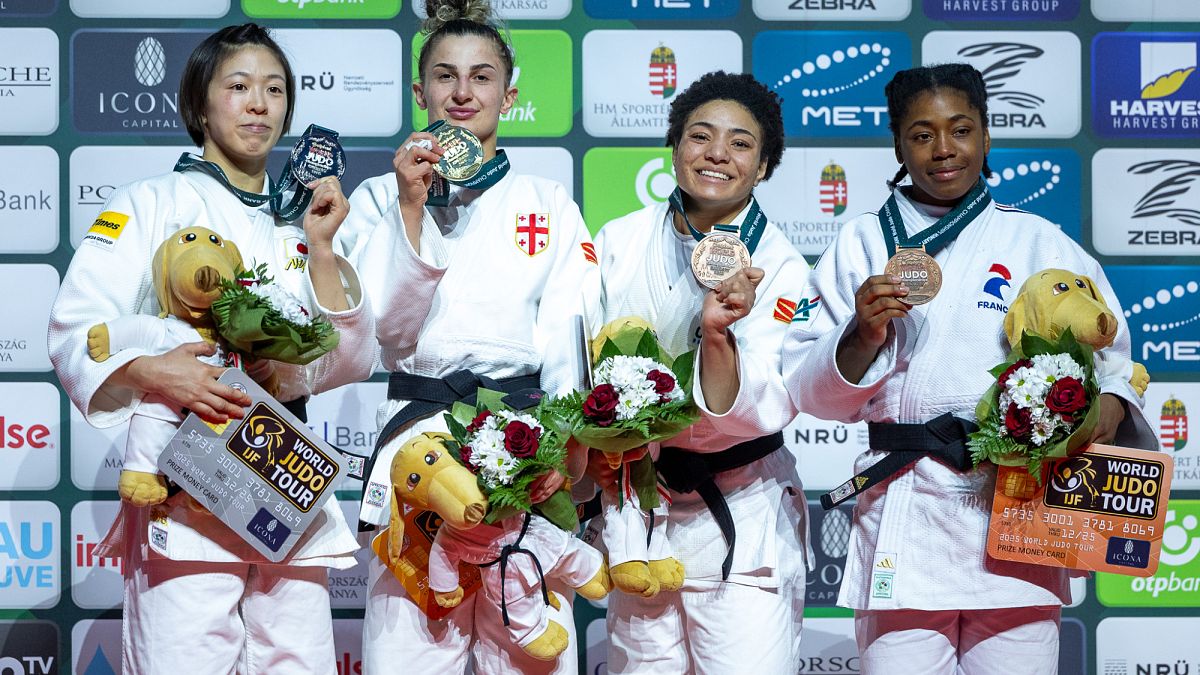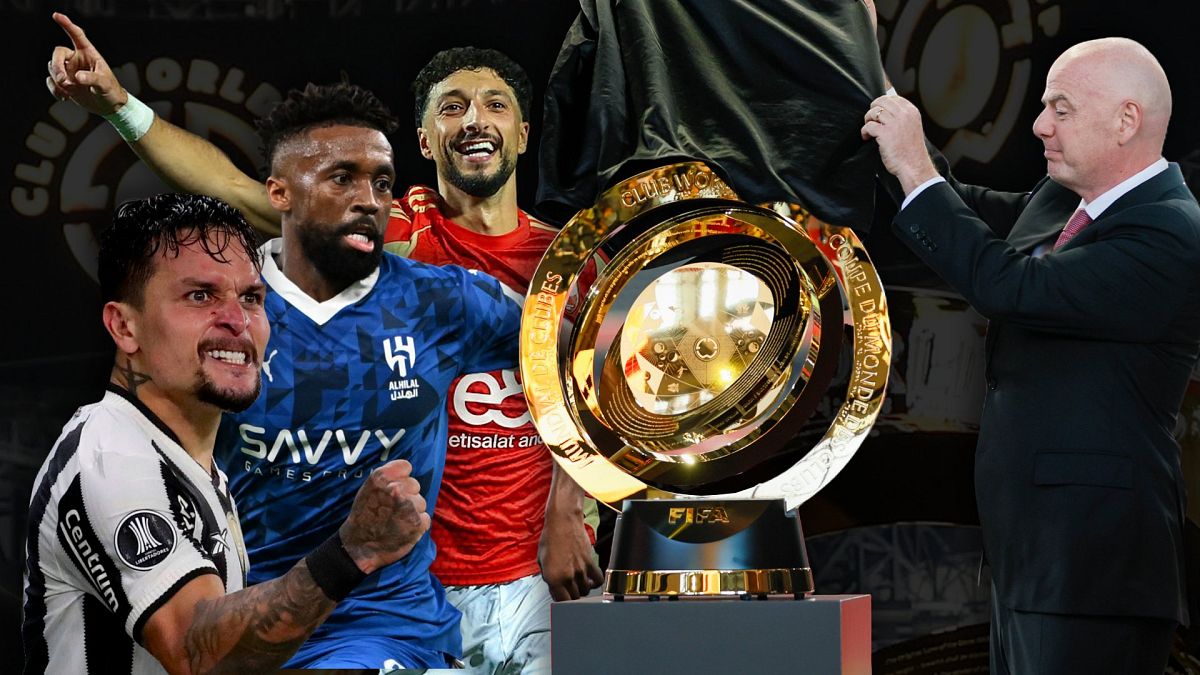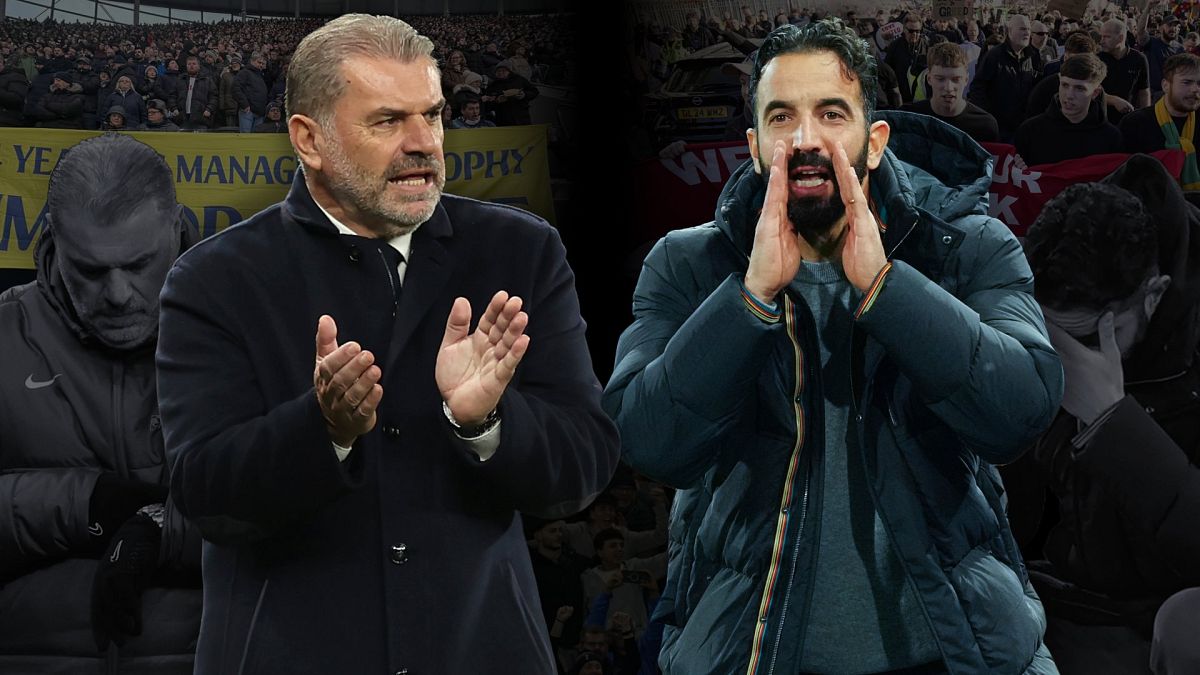Industry leaders discuss the future of the automobile sector in Doha

In this episode of The Exchange, we travel to the Geneva International Motor Show in Doha to meet the world’s leading car brands as they converge to decide the future of the automotive sector.
The multi-trillion-dollar car business is changing at high speed. On this special episode of The Exchange, we visit the Geneva International Motor Show in Qatar, where leaders from Toyota, Kia and BMW report on the race from petrol to electric power.
The Exchange met with the world’s leading car brands as they converged in Qatar to decide the future of the sector.
The automotive giants constantly moving forward
Industries don’t come much bigger than the car business. According to industry analysts, IBISWorld, the global auto industry is valued at over $4 trillion.
The sector is so large, in fact, that in Europe, 7% of all jobs are linked to cars. Manufacturers are busy making the massive changes required to play their part in the fight against climate change.
Researchers are predicting a huge rise in demand for electric vehicles, with 14 million units expected to be sold by the end of 2023.
The Exchange caught up with the world’s biggest-selling car maker, Toyota, and the current number one auto brand, according to Consumer Reports, BMW, to understand the future vision of their brands.
“Technology and innovation are at the heart of Toyota,” revealed Yazan Mustafa, the Senior Dealership Director for Toyota in the Middle East.
“Toyota today is following a multi-path strategy where they are investing in multiple technologies such as the electric, the fuel cell, the hybrid and the petrol engines and the combustion engine. So all these technologies are mixing up to shape the future of the automotive industry.”
“Two topics are really important for us,” said Dr Matthias Hartel, the Director of Sales & Marketing at BMW for the Middle East. “First of all, we are very much closely listening to the trends and what’s happening around the world, and we see that sustainability is one of the things, and consciousness about the environment is one of the things that are picking up.
“I think the second part, which is very important for us, is our customers. So, we listen very much to what they want to say and we listen very much to what they want and what they appreciate in cars.”
Kia makes huge strides in electric car sales
Korean car giant, Kia, has seen steady growth over the last 12 months with sales of eco-friendly cars skyrocketing. Indeed, electric vehicle sales shot up by 87% compared with last year.
“We’re focusing on a strategy that focuses electrification as a key thing,” said Yaser Shabsogh, Kia’s vice president of commercial operations for the Middle East and Africa.
“Also, the idea of connectivity is to make sure that our vehicles are fully connected and to give the customer a fully connected experience when they’re in our vehicles. Also, autonomous driving by the second half of this decade, virtually all our vehicles will be autonomous or autonomous-ready, meaning that you can very easily get to that point should you want to. And then what you’re also focusing is on creating a new genre of vehicles, purpose-built vehicles. It’s almost like customisation taken to the nth degree,” he told The Exchange.
Kia, along with many other car brands, was in Doha to share new ideas and solve industry-wide problems. But what was the thinking behind hosting an event synonymous with Europe in Qatar?
“Everything started in July 2020,” explained the CEO of the Geneva International Motor Show, Sandro Mesquita.
“I received a call from His Excellency, Mr Akbar al-Baker, asking me if I would be interested in organising one edition of the Geneva International Show in Doha and doing all the process. We said, but why do we want us to do one edition and why not think about going bigger and developing together a totally new concept. And that’s why we came up with the idea of a festival of automotive excellence. And that’s why we are here today in Doha for this first edition.”
Classic designs for the modern world
It’s not just in Doha where the passion for the car is thriving. In the Netherlands, Martijn Van Dijk and his company, Voiture Extravert, are helping classic cars go green.
With many classic cars struggling to meet emission standards, for Martijn, there’s a mission with this business.
“Getting colour back on the streets again. We really love classic cars and we are really disappointed that we don’t see them around anymore,” he told The Exchange.
Martijn and his team showed The Exchange a 1960s Porsche 911 that they had converted entirely into an electric vehicle.
Voiture Extravert launched in 2016. They receive engineless 911 bodies from Germany and create their own high-spec electric motor system, which they install.
They have a 400-kilometre range, and every car gets top-of-the-range digital mod-cons. But they’re not cheap. The minimum price per car is €350,000.
“Just restoring a classic car and on the level that we restore it is something that easily takes you €200,000, normally,” Martijn explained.
“Of course, we do things very smart. We do it in a small series production that makes it more cost-efficient, but that’s a really large chunk of the cost price that we have.”
Voiture Extravert has sold ten cars so far and is aiming to sell 12 this year, shipping them out to buyers all over the world.
The climate emergency has changed the car business forever. The race to diversify from petrol to electric power is picking up speed. Technology is redesigning what it means to drive. But despite this unprecedented disruption, the road map for the auto sector still shows strong signs of growth.
Source: Euro News














